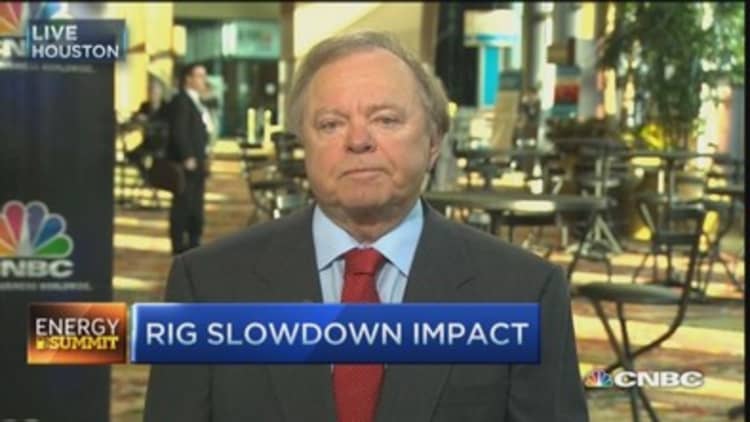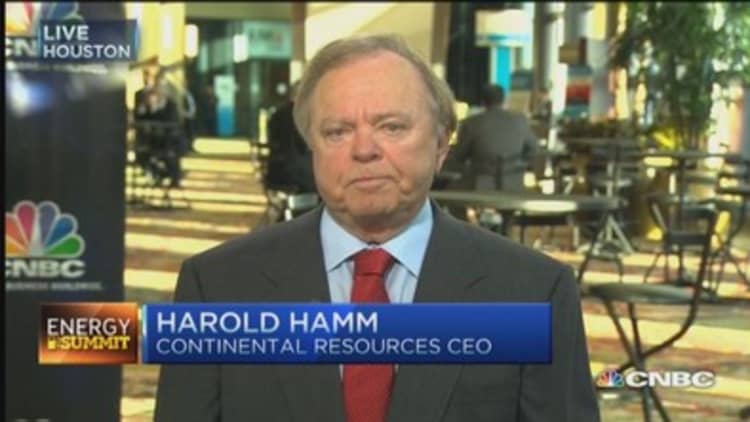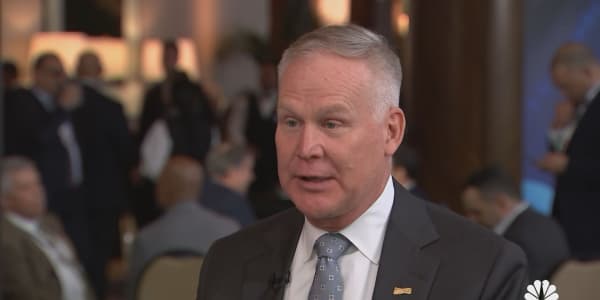


Billionaire oilman Harold Hamm questioned Tuesday how the U.S. government could consider lifting sanctions that would allow Iran to export oil, while keeping a decades-old ban in place prohibiting American energy companies from selling domestic crude on the world market.
"Here we are thinking about lifting the sanctions on Iran and letting them export, and yet here we have sanctions in America that we can't export our oil. What's going on?" posited the founder of Continental Resources, ahead of his afternoon address before the IHS CERAWeek conference in Houston.
He echoed sentiments expressed by Republican Sen. Lisa Murkowski from Alaska, who spoke before the group on Monday and pledged to introduce legislation this year that would lift the ban on U.S. oil exports, in place since the 1970s.
Read MoreUS oil export ban is 'sanction against ourselves': Murkowski
"We build pipelines to Canada to allow them to export, yet we can't here in America. There's something wrong with this policy, bad wrong," Hamm said on CNBC's "Squawk Box" on Tuesday. It's been a multiyear process of educating lawmakers in Washington about the issue, he said, adding that's he's hopeful the ban would be overturned soon.
The Continental Resources chairman and CEO blames the domestic oil export ban for hampering American producers from dealing with imbalances in refinery capacity.
"We've got a huge mismatch of refinery capacity in the U.S. Two-thirds of it now are set up for heavy sour [crude]," which contains a higher percentage of sulfur impurities than U.S.-produced light sweet crude, he said.
If U.S. oil producers could access light sweet refineries overseas, there would not be a such a processing bottleneck and fewer rig shutdowns, he argued.
Producers have idled a thousand rigs in the past four months, due partly to the refinery issue, but largely because of oversupply in the face of the collapse in oil prices, Hamm said. "We have 105,000 people out of work in this industry."
"From three primary plays in the U.S., we'll see production down about 700,000 a barrels day in a year," he predicted, which should help boost prices.
If prices rise, production would increase, but not nearly as quickly as it was shut down, Hamm said. "It can shut down quickly, but it takes three or four times as long to bring them back on. It's not an easy thing to get all the equipment back, lined up, contracts, permits. ... It's about a six month lag if you will."
He called it a "roller coaster" that's not good for producers or consumers, bringing his argument to lift the U.S. oil export ban full circle, saying the move would bring more stability to the U.S. crude market.





